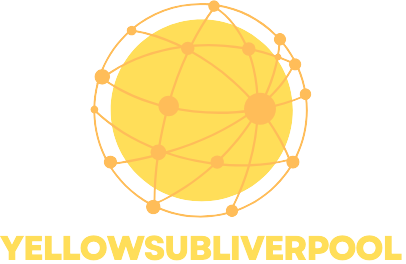Table of Contents
ToggleIn today’s fast-paced digital landscape, having the right tools can make or break a marketing campaign. Imagine trying to build a house with a spoon—frustrating, right? That’s how it feels when marketers tackle their tasks without the proper digital marketing tools. From social media management to SEO optimization, these tools are the power-ups every marketer needs to level up their game.
Overview of Digital Marketing Tools
Digital marketing tools streamline various aspects of marketing campaigns, thereby increasing efficiency and effectiveness. Analytics platforms, such as Google Analytics, provide insights into website traffic and user behavior, enabling marketers to make data-driven decisions. Search engine optimization tools help improve website visibility, ensuring content reaches the target audience.
Social media management tools assist with scheduling posts and tracking engagement across multiple platforms. Tools like Hootsuite and Buffer enable users to manage accounts seamlessly while analyzing performance metrics. Email marketing software, such as Mailchimp or SendinBlue, allows marketers to design campaigns, segment audiences, and evaluate outcomes through detailed analytics.
Content management systems, including WordPress and HubSpot, facilitate easy website creation and management. With these systems, users can publish content regularly, enhancing user engagement and search rankings. Customer relationship management software, like Salesforce, streamlines lead management and improves customer interactions.
Collaboration tools such as Slack and Trello enhance team communication and project management, pushing campaigns forward efficiently. Marketing automation platforms, including Marketo and HubSpot, allow for personalized messaging based on user behavior, further enhancing engagement levels.
Choosing the right combination of digital marketing tools leads to optimized campaigns and measurable results. Considering factors like budget and team size helps determine the most effective solutions for unique requirements.
Types of Digital Marketing Tools
Digital marketing tools come in various categories, each playing a crucial role in marketing strategies. Utilizing these tools enhances efficiency and drives better results.
Social Media Management Tools
Social media management tools streamline the process of managing multiple platforms. Hootsuite and Buffer allow for easy scheduling of posts across different sites. Engaging with audiences becomes simpler through analytics on user interaction and engagement metrics. Brands track performance and refine their strategies based on real-time data. Optimizing social media campaigns hinges on leveraging these tools effectively.
SEO Tools
SEO tools are essential for improving a website’s visibility on search engines. Semrush and Ahrefs provide insights on keyword performance and competition analysis. Monitoring backlinks and optimizing site speed contribute to better search rankings. Implementing site audits ensures that technical issues are resolved quickly. Effective SEO strategies rely heavily on the insights gained from these specialized tools.
Email Marketing Tools
Email marketing tools aid in designing and executing effective campaigns. Mailchimp and Constant Contact enable marketers to segment audiences and personalize messages. Automation features facilitate timely communication with subscribers based on their behaviors. Performance metrics assist in measuring open rates and conversions, allowing for continuous enhancement. These tools serve as vital components in driving customer engagement and loyalty.
Analytics Tools
Analytics tools offer valuable insights into website performance and user behavior. Google Analytics tracks vital data, including traffic sources and user demographics. Understanding visitor interactions guides marketers in making informed decisions. Data-driven strategies lead to optimized web content and improved user experiences. Leveraging analytics tools enhances overall marketing efficiency significantly.
Benefits of Using Digital Marketing Tools
Digital marketing tools offer numerous advantages that enhance marketing strategies. The use of these tools significantly increases efficiency, improves targeting, and provides data-driven insights.
Enhanced Efficiency
Digital marketing tools automate repetitive tasks. Automation tools save time that marketers can redirect towards strategic planning. For example, social media management tools streamline the posting process, allowing marketers to schedule content ahead of time. Collaboration tools enhance team communication, ensuring that everyone remains on the same page with project updates. Efficiency gains measured through these tools help organizations run smoother campaigns, thereby improving overall productivity.
Improved Targeting
Targeting audiences effectively becomes simpler with specialized digital marketing tools. Advanced analytics tools identify audience demographics and preferences, allowing marketers to tailor their strategies closely. CRM software tracks customer interactions, which enables personalized marketing efforts. Email marketing platforms support segmentation, allowing campaigns to target specific user groups effectively. By reaching the right audience at the right moment, brands can maximize engagement and conversion rates.
Data-Driven Insights
Data-driven insights obtained from digital marketing tools guide strategic decisions. Analytics platforms provide in-depth reports on website traffic and user behavior, showcasing areas for improvement. By understanding key performance indicators, marketers can adjust their tactics in real time. SEO tools generate actionable insights on keyword performance and site audits, enhancing visibility. Consequently, businesses equipped with these insights make informed choices that drive growth and improve overall marketing effectiveness.
Popular Digital Marketing Tools in 2023
Digital marketing tools play a vital role in enhancing marketing strategies in a competitive landscape. Each tool serves specific functions, offering marketers the capabilities necessary for improved efficiency and effectiveness.
Tool Comparisons
Choosing the right tool requires careful evaluation of features and benefits. Google Analytics excels in providing in-depth user behavior data. In contrast, Semrush focuses on SEO optimization, offering keyword tracking and backlink analysis. Hootsuite simplifies social media management through post scheduling and performance analytics. Mailchimp stands out for its user-friendly email marketing automation, enabling effective audience segmentation. By comparing these tools against specific needs, marketers can select the best options for their campaigns.
User Reviews
User reviews significantly influence the selection of digital marketing tools. Many users praise Buffer for its intuitive interface and ease of scheduling across multiple platforms. Positive feedback frequently highlights Mailchimp’s robust analytics for tracking email campaign performance. On the other hand, some users express concerns over the learning curve associated with advanced features in tools like HubSpot. Evaluating user reviews offers valuable insights into real-world performance, helping marketers make informed choices about which tools fit their objectives best.
Selecting the right digital marketing tools is crucial for any marketing strategy. These tools not only enhance efficiency but also provide valuable insights that drive success. By leveraging platforms tailored to specific needs marketers can streamline their efforts and achieve measurable results.
As the digital landscape continues to evolve staying informed about the latest tools and their functionalities is essential. Investing in the right resources empowers marketers to make data-driven decisions and refine their strategies effectively. With the right combination of tools businesses can navigate the competitive environment and reach their goals more efficiently.







